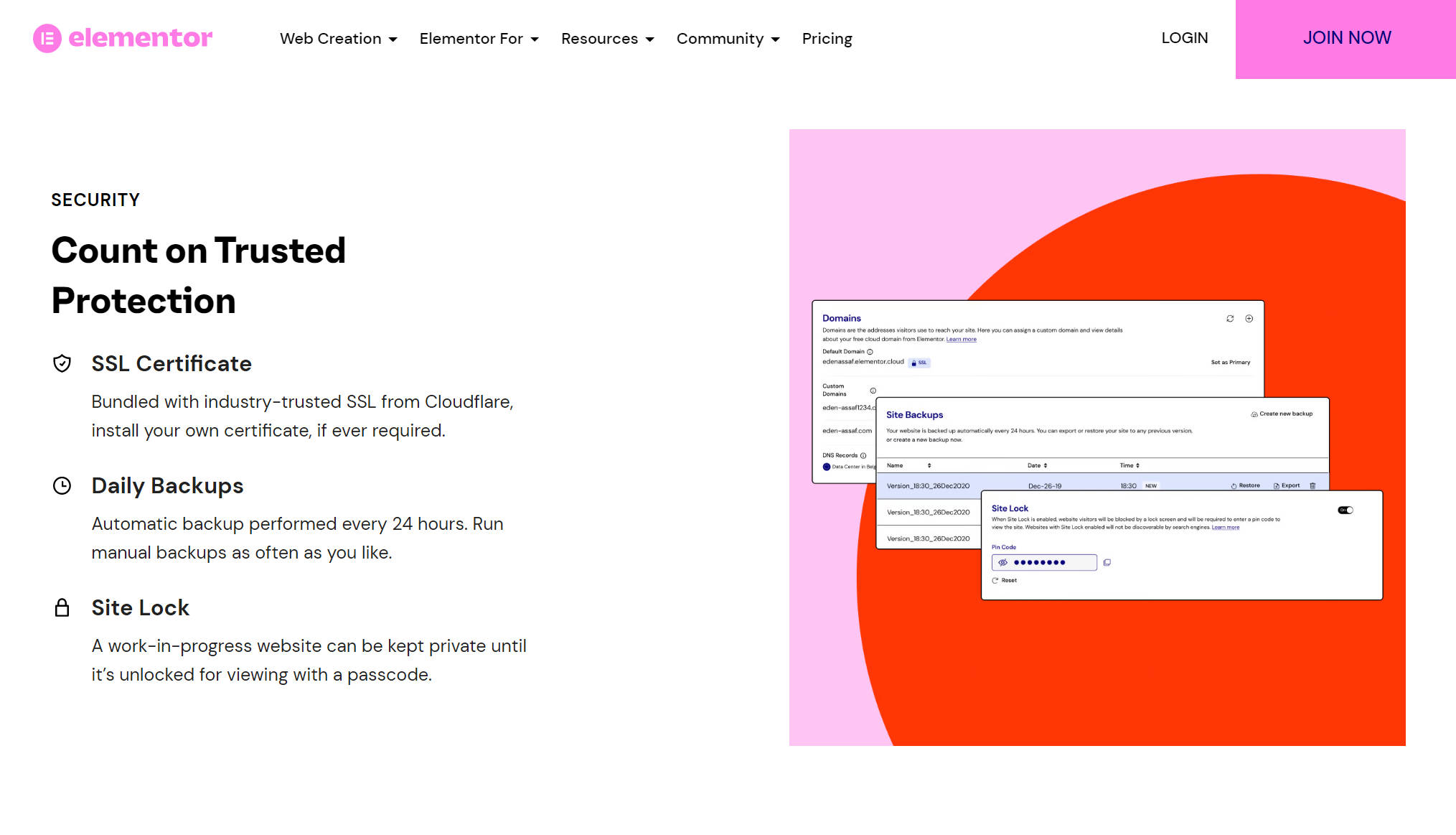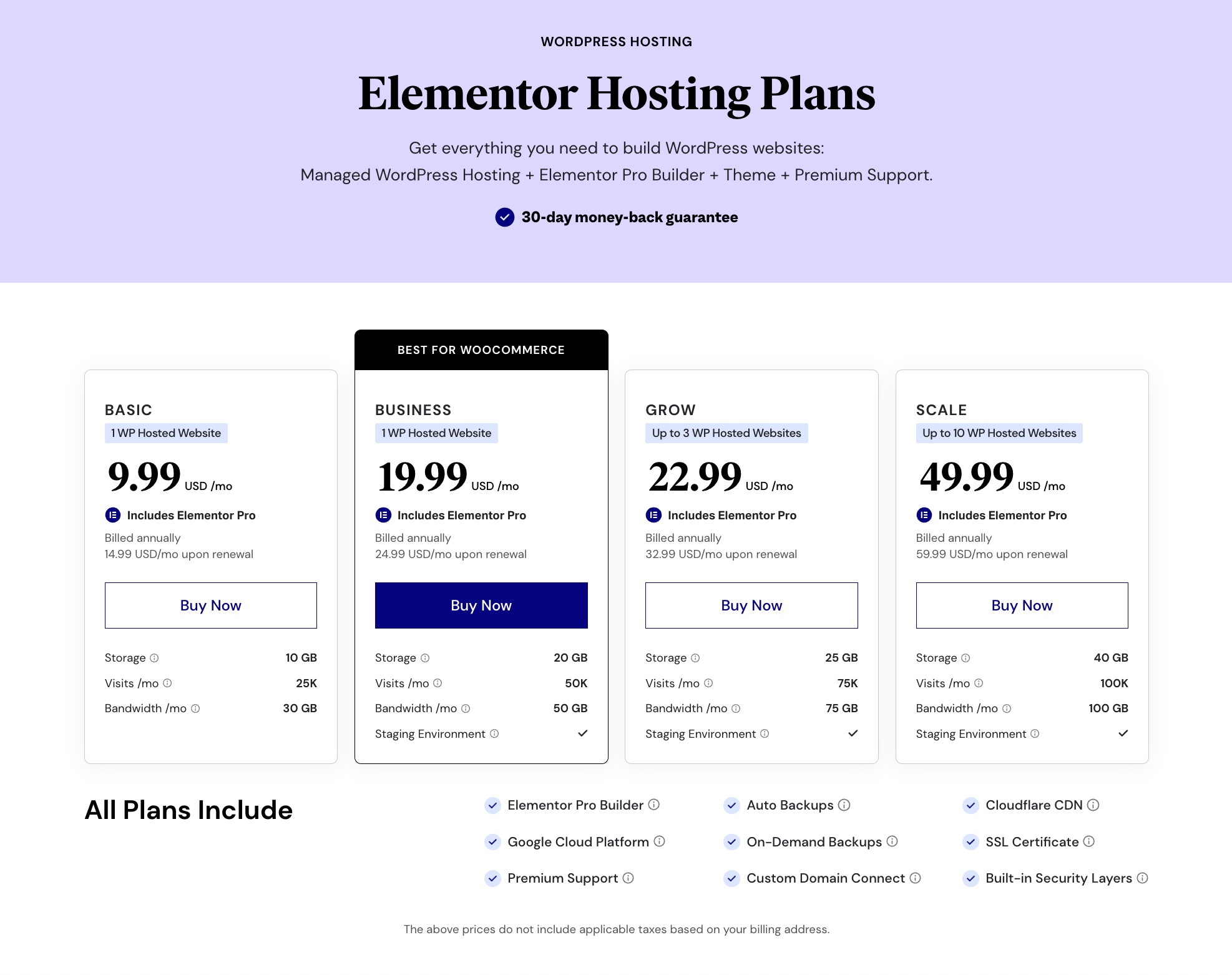Table of Contents
If you’re trying to build a website, you’ve probably seen people telling you that you need “web hosting” or a “web host”.
But what does a web host do? And why is web hosting so important when you’re making a website?
The basic idea is that a web host provides the computing resources needed to power your website’s code and deliver its data to visitors.
However, it’s not quite that simple, because many web hosts also go beyond just the basics and provide other features to make your life easier and help your website be successful.
In this post, you’re going to learn everything you need to know about the basics of web hosting.
We’ll cover what a web host is, why it’s important, and what types of services you should expect to receive from a quality web host.
Let’s dig in, starting at the beginning.
The 5 Different Types of Website
What Is A Web Host?
A web host is a service provider that offers web hosting.
In general terms, web hosting is the engine that powers your website and makes it accessible to visitors around the world.
On a more technical level, web hosting is basically renting some or all of a computer (called a “server”) so that you can use that computer’s storage and processing power to run your website.
For example, if you’re making a WordPress website, the web hosting server is what powers the actual WordPress software and all of your plugins.
There are different types of web hosting providers. For example, some web hosts will have your account share hosting resources with other accounts on the server (called shared hosting), while others give your site its own dedicated resources.
In 2022 and beyond, one of the most popular types of web hosting is cloud hosting. With cloud hosting, the cloud host allocates resources to your site on a huge network of servers (“the cloud”).
Nowadays, some of the biggest hosting providers use this cloud approach, including all the tech giants – Google Cloud Platform, Amazon Web Services (AWS), Microsoft Azure, and so on.
Older types of hosting rely on a single physical server. The provider might allocate some of that server’s resources to your account (called a virtual private server, or VPS) or it might give you access to all of the resources (called a dedicated server).
As a rough rule, the cost of your web hosting will go up as you add more computing resources to your hosting plan. However, there are a lot of variables that go into the cost of web hosting, including the exact features that each host provides.
So what are those features? Let’s talk about them next.
What Should Web Hosts Provide?
At a very basic level, all a web host needs to provide is the computing resources to power your websites. Generally, this means a set allocation of storage space (e.g. 10 GB of storage) plus some processing power to run your site’s software and some bandwidth to serve your site’s data to visitors.
When it comes to the computing resources that are available to your plan, some hosts will bill you based on your site’s resource consumption – such as the amount of processing that it uses or how much bandwidth your data consumes.
Others might use the number of visits that your site receives per month, which gives you a simpler way to gauge how many visitors the hosting server can handle.
However, many web hosts go beyond just computing resources and offer other features and tools to help you more efficiently manage and grow your websites.
Unless you’re a developer with the knowledge and motivation to do everything yourself, you’ll want to choose a web host that offers some of these other benefits in addition to basic web hosting services.
The exact features that you’ll get depend on the type of host (e.g. cloud vs non-cloud) and the provider itself.
One important detail to consider, though, is that some hosts will charge extra for some of these features, so it’s important to fully investigate your host’s pricing to avoid incurring hidden hosting costs.
So – what does a web host do when it goes beyond the minimum? Let’s break it down into a few different categories:
- Site setup tools
- Security
- Performance optimization
- Maintenance
- Support
1. Site Setup Tools
A quality web host should make it easy for you to create your site without forcing you to do everything from scratch.
Typically, this comes in the form of software installer tools. For example, if you want to make a WordPress website, a host might offer a WordPress installer that lets you create a basic WordPress site using a graphical interface instead of needing to manually install the software.
Some hosts will even go one step further and pre-install the software for you so that you can start building right away.
For example, if you use Elementor Hosting, it will preinstall WordPress for you along with Elementor Pro and the Hello theme so that you can be working on your site within minutes of signing up.
2. Security
Website security is another key area where a web host can make your life easier.
Some web hosts just give you the hosting server and make you responsible for securing it, while others will build in a lot of their own protections to secure your websites.
Here are some common security improvements that some web hosts offer:
- Free SSL certificates to encrypt your site’s data as it passes between your server and your visitors’ browsers. This is absolutely essential if you’re hosting a WooCommerce store, but other types of sites should still use an SSL certificate.
- Firewalls to proactively prevent malicious threats.
- Malware scanning to detect malicious files on your server.
- Secure hosting hardware and infrastructure.
For example, Elementor Hosting gives you a free SSL certificate from Cloudflare so that your site’s data is always secure in transit, along with other improvements such as the ability to lock your site behind a password and secure infrastructure from Google Cloud Platform.
If you want to learn more about how Elementor Hosting uses Google Cloud infrastructure to protect your site with firewalls, DDoS prevention, and other tactics, check out our post that explains cloud hosting security.

3. Performance Optimization
Having a fast-loading site is important on the modern web, as it can have an effect on your site’s user experience and search rankings.
One way that a web host affects your site’s performance is the basic resources of your hosting plan. If the server has fast processors and plenty of resources, it will be able to load your site faster than a server with slow processing and limited resources.
This is one of the reasons why cloud hosting has become so popular. Cloud hosting gives you access to performance-optimized hardware and makes it easy to allocate more resources to your account if needed.
For example, if you host on Google Cloud Platform (or use a hosting service that does, such as Elementor Hosting), you’re getting access to the same servers that Google uses to power its own properties such as Google Search, YouTube, and so on.
Beyond offering performance-optimized hardware, some web hosts will build in additional performance optimization tactics such as a content delivery network (CDN) to speed up global load times.
4. Website Maintenance
Whether you build your site with WordPress or another tool, you’re going to need to perform some regular maintenance if you want to keep it functioning properly.
To help you save time and simplify your workflows, some web hosts can help you with certain areas of website maintenance. Here are some common examples:
- Automatic updates for the WordPress core (and sometimes plugins)
- Automatic daily backups
- Manual on-demand backups when needed
For example, Elementor Hosting for WordPress will back up your site every day without you lifting a finger and it also lets you take a manual backup when needed.
5. Support
Finally, many web hosts also provide their own support services so that you can get help if something goes wrong with your server.
Some web hosts won’t offer any support, but most web hosts provide at least some level of support.
However, it’s important to understand that there are different “scopes” for what you can get help with.
Some web hosts will only offer support if something goes wrong with your hosting server itself.
Others will offer broader support policies and can also help diagnose issues with your website as it relates to the hosting.
For example, if you use Elementor Hosting, you’ll get access to dedicated support staff who can help you with both hosting and creating your website with WordPress and Elementor.
What You Get With an Elementor Managed Hosting
If you don’t want to deal with purchasing your own web hosting, you can use Elementor Hosting to create your WordPress website.
Elementor Hosting offers an all-in-one solution that includes built-in web hosting along with pre-installed WordPress and access to all the Elementor Pro features.
Instead of needing to purchase separate web hosting and then install the WordPress software, you can just sign up for Elementor Hosting and start building within the first few minutes.
In addition to offering simplicity when it comes to creating and managing your site, Elementor Hosting also simplifies your billing by offering predictable fixed pricing, with none of the hidden hosting costs that you might get with other providers.

With plans starting from just $9.99 for your first year, you’ll get access to everything below:
- Built-in hosting from Google Cloud Platform
- Pre-installed WordPress, Hello theme, and Elementor
- All Elementor Pro features
- Secure content delivery network (CDN) by Cloudflare
- Free SSL certificate from Cloudflare
- An ample amount of storage, bandwidth, and monthly visits are available
- Free custom domain connection
- Free subdomain elementor.cloud
- Automatic daily backups
- Manual backups from My Elementor account
If you want to learn more and get started, you can head to the Elementor Hosting page.
Conclusion
If you want to make a website, you need a web host to provide the computing resources to power your website and make it available to visitors around the world.
To provide these resources, you’ll find different types of web hosting, such as cloud hosting, shared hosting, VPS hosting, dedicated hosting, and more.
Providing these computing resources is the bare minimum of what you should expect from a web host. However, many web hosts go beyond the basics and provide other features to help you work more efficiently and create a better website.
These features could help you simplify the process of launching your site, speed up your site’s load times, secure it against malicious actors, streamline your maintenance processes, and more.
Elementor Managed Hosting offers an all-in-one solution with built-in hosting from Google Cloud Platform, preinstalled WordPress, and Elementor Pro, plus convenient features like automatic backups and SSL certificates at no extra cost.
Do you still have any questions about what a web host does or why you need one? Leave a comment below and let us know!
Looking for fresh content?
By entering your email, you agree to receive Elementor emails, including marketing emails,
and agree to our Terms & Conditions and Privacy Policy.






